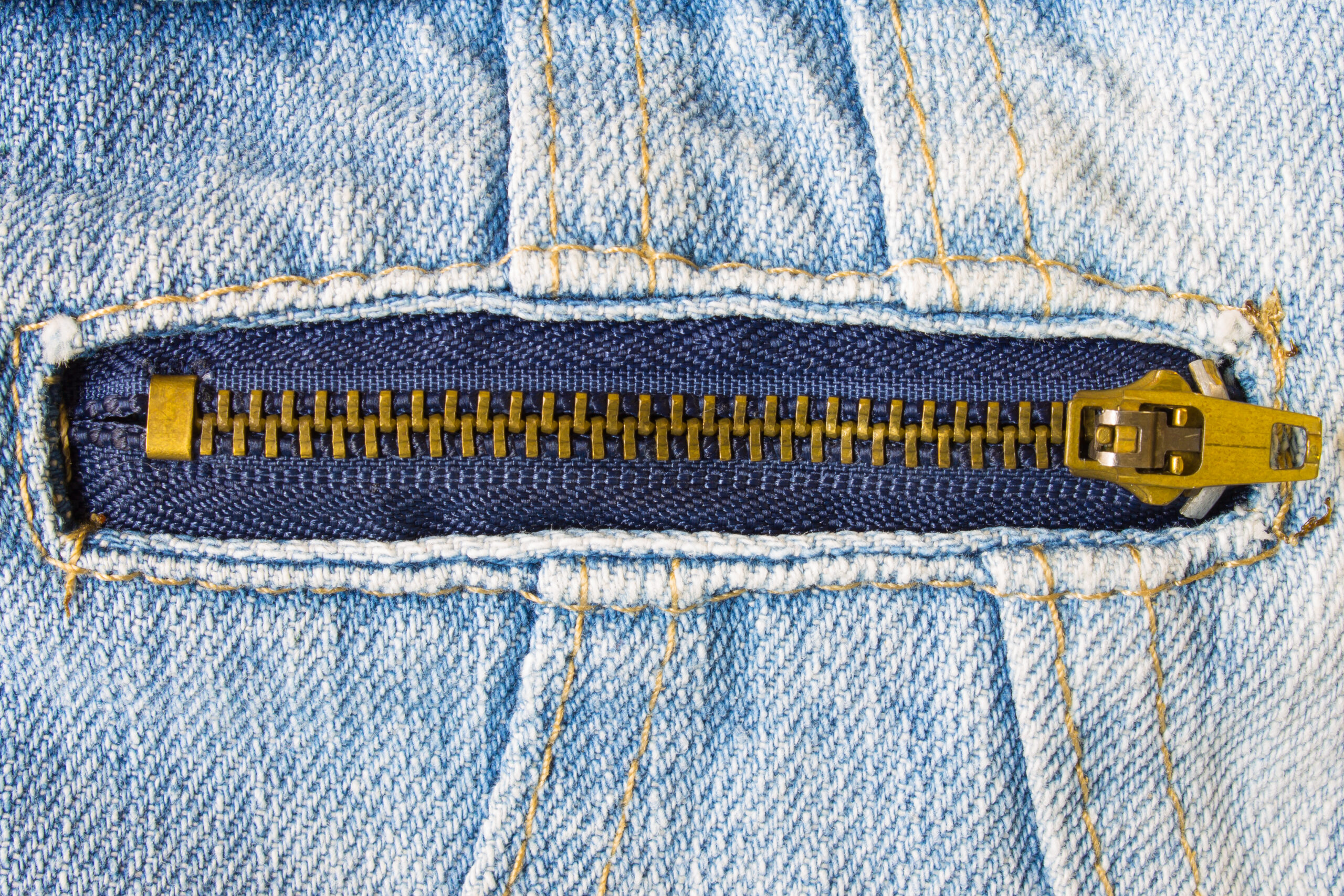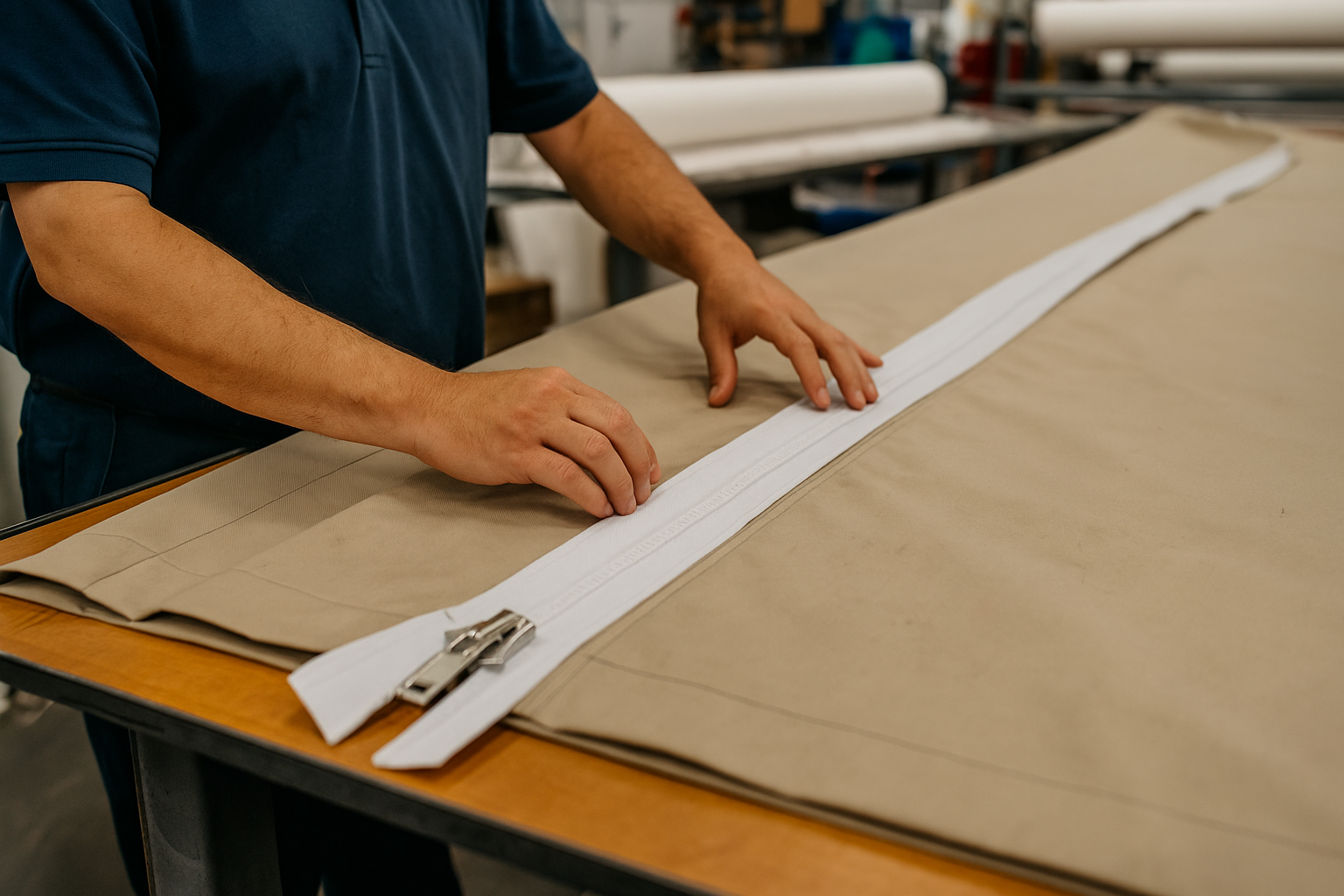For OEMs and designers of tool bags, camera bags, tactical packs, luggage, and medical cases, few components play a bigger role in performance than the zipper. A failed zipper means a failed product—contents become unsecured, customers lose confidence, and the brand’s reputation takes a hit. That’s why heavy-duty zippers for bags and protective cases are more than just hardware; they are engineered systems that define durability and reliability.
The wrong zipper can lead to warranty claims and field failures. The right zipper, specified with care and produced by a proven zipper manufacturer USA, ensures zipper durability, zipper strength, and long-term performance.
At LenZip, we’ve specialized in custom zipper manufacturing since 1946, and we’ve seen firsthand how the right zipper choice transforms a bag or case from good to great.
Zipper Materials and Types: Matching Design to Performance
When specifying zippers, the first question for any OEM should be: what materials will perform best in the intended environment? The three primary options are molded plastic, nylon coil, and metal—each with unique strengths.
Molded tooth zippers are built with large injection-molded teeth made from acetal (POM) or polyester resin. They are exceptionally resistant to UV, saltwater, and corrosion, making them a top choice for heavy-duty zippers in tool bags, luggage, tactical gear, and waterproof protective cases. Their robust interlocking teeth deliver excellent strength-to-weight ratios, though their bulkier profile may not suit delicate or flexible designs.
Nylon coil zippers are constructed from continuous nylon filament stitched onto polyester zipper tape. They are flexible, smooth-running, and abrasion-resistant—qualities that make them ideal for camera bags, medical cases, and luggage where curved applications and repeated opening cycles are common. With the right treatments, they can also be fire-rated or water-resistant, expanding their role in technical gear.
Metal zippers remain the classic heavy-duty option. Manufactured with brass, aluminum, nickel, or steel teeth, they provide unmatched tensile strength and a rugged aesthetic. They are used in rugged tool bags, leather luggage, and industrial cases that require maximum durability. However, they are heavier than nylon or molded plastic and may need protective finishes to resist corrosion in humid or marine environments.
Each zipper type has trade-offs. By working with an experienced zipper factory like LenZip, OEMs can match materials, gauges, and finishes to their exact application.
Zipper Tape and Sliders: Critical but Overlooked
While zipper teeth draw the most attention, zipper tape and sliders are often the unsung heroes of zipper strength.
Most industrial zippers use polyester tape, which offers excellent abrasion resistance, dimensional stability, and protection against UV and moisture. Reinforced polyester tapes are available for heavy-duty cases and tool bags that experience repeated overstuffing and stress. In specialty markets, fire-rated or waterproof tapes add another layer of performance, ensuring zippers meet regulatory or environmental requirements.
Sliders also make or break zipper reliability. Autolock sliders are invaluable for medical cases, tactical gear, and protective equipment where accidental openings are unacceptable. Double-pull sliders provide flexibility for luggage and larger tool bags by allowing access from either direction. Many OEMs also choose custom-branded sliders to reinforce product identity.
LenZip’s zipper production process integrates tape, slider, and teeth design so every element works in harmony. This holistic engineering approach helps OEMs avoid mismatches that can lead to premature zipper failure.
Understanding Zipper Failures
Even the strongest heavy-duty zippers can fail when improperly specified. Knowing where failures typically occur helps OEMs design smarter.
Broken teeth are common when undersized gauges are chosen for oversized or high-load applications. For instance, using a #5 coil zipper on a fully loaded tool bag is a recipe for failure. Sliders can deform or separate when made from inferior alloys, leading to zippers splitting open under stress. Tape degradation is another frequent issue—cheap or untreated polyester tape may fray or weaken under UV exposure or heavy abrasion. Finally, dirt, grit, and poor coil construction can lead to jamming and misalignment, frustrating end users and causing costly repairs.
By partnering with a proven OEM zipper supplier, these pitfalls can be avoided. Proper gauge selection, reinforced tape, and corrosion-resistant sliders ensure zippers last as long as the products they protect.
Custom Zipper Manufacturing: Flexibility for OEMs
No two bags or protective cases are exactly alike, which is why custom zipper manufacturing is often the best route for OEMs. A U.S.-based zipper manufacturer like LenZip can provide tailored solutions in gauge sizes, tape widths, slider types, and finishes.
For strength, larger gauges are critical. #8 zippers are suitable for medium-duty luggage and protective cases, while #10 is the industry standard for heavy-duty zippers in tactical gear, tool bags, and industrial cases. For oversized or specialty products, gauges up to #20 may be required.
Environmental requirements drive other decisions. Water-resistant zippers with welded tape and sealed sliders are essential for camera bags, medical cases, and outdoor equipment. Fire-rated zippers meeting FMVSS or NFPA standards are specified for industrial and emergency applications. OEMs also increasingly request custom branding, from logo-embossed pulls to colored tape and teeth that align with product aesthetics.
Because LenZip operates a zipper factory in the USA, OEMs benefit from shorter lead times, secure supply chains, and responsive engineering support. Our low minimums also make it easier to move from prototype to production.
Industry Applications: Where Heavy-Duty Zippers Perform
The demand for industrial zippers spans multiple sectors, each with unique needs:
- Tool bags: Require molded tooth or large-gauge metal zippers with reinforced polyester tape to withstand heavy loads and abrasion.
- Camera bags: Depend on smooth, flexible nylon coil zippers to handle curved designs while protecting sensitive equipment.
- Medical cases: Often use fire-rated or water-resistant zippers to protect critical supplies in emergencies.
- Tactical gear: Relies on heavy-duty molded plastic zippers with autolock sliders for strength and security in harsh conditions.
- Luggage and travel bags: Require abrasion-resistant zippers that balance weight, strength, and durability across repeated use cycles.
Each application highlights a simple truth: the zipper is not an accessory—it’s the core closure system that determines reliability.

FAQs: Heavy-Duty Zippers for Bags and Cases
Q: What gauge zipper is best for tool bags and protective cases?
Most heavy-duty bags use #8 or #10 zippers, with gauges up to #20 for oversized or industrial cases requiring maximum zipper strength.
Q: Are molded plastic or metal zippers better for protective cases?
Molded plastic resists UV, corrosion, and saltwater, making it ideal for tactical and outdoor gear. Metal excels in tensile strength and abrasion resistance but may require protective finishes.
Q: Can heavy-duty zippers be water-resistant?
Yes. Water-resistant zippers feature coated tape and sealed sliders to protect camera gear, medical supplies, and outdoor cases.
Q: How do OEMs improve zipper durability?
By choosing polyester tape, corrosion-resistant sliders, and appropriate gauges. Working with an experienced zipper supplier USA ensures long-lasting performance.
Q: Why choose a U.S.-owned zipper manufacturer?
Partnering with a zipper manufacturer USA like LenZip guarantees faster delivery, tighter quality control, and reliable supply chains—critical advantages for OEMs.
Conclusion: Zippers Define Reliability
In bags and protective cases, zippers are more than closures—they are guarantees of performance, safety, and reliability. A weak zipper undermines even the best materials, while a well-engineered closure system ensures long-lasting customer confidence.
At LenZip, we help OEMs design and source custom heavy-duty zippers that are engineered for real-world conditions. From molded tooth zippers for tool bags to nylon coil zippers for medical and camera cases and metal zippers for rugged luggage, our zipper production process is built on precision, consistency, and durability.
With over 80 years of experience as a U.S.-owned zipper factory, LenZip delivers closures that are on-spec, on-time, and built for performance.
Talk to a zipper specialist today or request a quote at (847) 368-9000.

